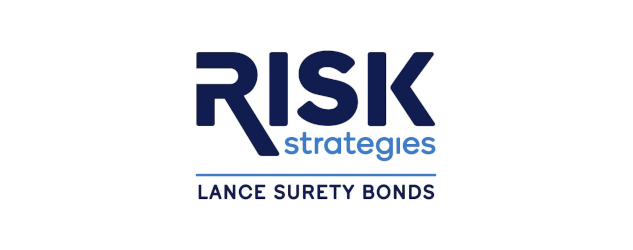What Does It Mean to Be Bonded?
The term ‘bonded’ is often seen in business credentials, particularly among contractors, cleaning companies, and service providers. But what does it truly mean to be bonded, and why is it so important?
At its core, being bonded refers to the purchase of a surety bond, a type of financial and legal instrument that protects consumers and clients from potential losses due to negligence, fraud, or failure to perform a contractual duty. This form of risk management is a critical component for many businesses, offering both credibility and security.
This article explores what it means to be bonded, why bonding matters for businesses, the difference between bonding and insurance, the most common types of surety bonds, how to obtain a bond, and what influences surety bond costs.
What Does Bonded Mean?
To be ‘bonded’ means a business or individual has secured a surety bond from a bonding company (also known as a surety). A surety bond is a three-party agreement involving:
- The Principal – the individual or business required to obtain the bond.
- The Obligee – the party requiring the bond, often a government agency or a customer.
- The Surety – the company that issues the bond and guarantees payment if the principal fails to meet obligations.
A surety bond is not insurance for the business, it’s a financial guarantee that the principal will fulfill specific responsibilities. If the principal breaches the terms of the bond—for instance, by failing to complete a project or by committing fraud—the obligee can file a claim. If the claim is validated, the surety compensates the obligee, and the principal is then required to repay the surety.
Who Needs a Surety Bond?
Bonding is common across industries where trust and performance are vital. Occupations and businesses that typically require surety bonds include:
- General contractors and construction firms
- Janitorial and cleaning services
- Auto dealers
- Freight brokers
- Notaries public
- Insurance brokers
- Home healthcare providers
In many cases, being bonded is a legal requirement to operate. In others, it serves as a strong differentiator in competitive markets, offering prospective clients an added layer of financial assurance.
Get a FREE Surety Bond Quote in Minutes
- Fast and Secure Application
- Money Back Guarantee
- Approval in Minutes
- Nationwide Coverage
Why Is Bonding Important?
Securing a surety bond is not merely a formality—it plays a significant role in safeguarding both businesses and their clients.
For Businesses
- Increased Credibility: A surety bond signals to potential customers and partners that the business is trustworthy and financially stable.
- Compliance with Legal Requirements: Many jurisdictions and professional licenses require bonding as part of their regulatory framework.
- Contract Eligibility: Public sector projects and corporate contracts often require bidders to be bonded before they can participate.
For Clients and Consumers
- Financial Protection: If a bonded service provider fails to meet their obligations, the client can seek compensation through the surety bond.
- Peace of Mind: Working with a bonded business reduces the risk of financial loss due to negligence, dishonesty, or default.
- Risk Mitigation: In industries with high-value or sensitive transactions, bonding ensures clients are not left vulnerable to misconduct or non-performance.
In essence, bonding cultivates a professional environment where accountability and protection are paramount.
Bonded vs. Insured: What’s the Difference?
While often mentioned together, bonding and insurance are fundamentally different. Both provide financial protection, but they serve distinct purposes and protect different parties.
|
Aspect |
Bonded (Surety Bond) |
Insured (Business Insurance) |
|
Primary Protection |
Obligee |
The business or policyholder |
|
Purpose |
Ensures fulfillment of obligations |
Covers unforeseen losses (e.g., accidents, liability) |
|
Claims Process |
Surety pays obligee, principal repays surety |
Insurer pays policyholder directly |
|
Requirement Type |
Often required by law or contract |
Often required by lenders or for risk mitigation |
While insurance protects the business from unexpected events, a surety bond protects the client from business failure or misconduct. Having both is often essential for a comprehensive risk management strategy.
Common Types of Surety Bonds
There are numerous types of surety bonds, each tailored to specific industries or legal requirements. Below are some of the most commonly used:
Contract Bonds
Used predominantly in the construction industry, these bonds ensure that contractors fulfill contractual obligations. Types include:
- Bid Bonds – Guarantee the contractor will accept the job if awarded.
- Performance Bonds – Ensure project completion per contract terms.
- Payment Bonds – Assure subcontractors and suppliers are paid.
License and Permit Bonds
Required by governments for businesses or individuals seeking licensure, license and permit Bonds ensure compliance with regulations and ethical business practices. Examples include:
- Auto dealer bonds
- Mortgage broker bonds
- Contractor license bonds
Fidelity Bonds
Fidelity bonds protect against employee dishonesty such as theft, embezzlement, or fraud. These are particularly common in financial services or positions of trust.
Court Bonds
Court bonds are required in legal proceedings to protect against potential losses. These include:
- Appeal bonds
- Guardianship bonds
- Probate bonds
Business Service Bonds
Often used by cleaning companies, movers, and caregivers, these bonds provide assurance to clients that they will be compensated for any damage or theft caused by employees.
Each bond serves a specific function, but all share a common purpose: protecting against loss or non-performance.
How to Get Bonded
The process of obtaining a surety bond is straightforward but requires preparation. Here’s a typical step-by-step overview:
- Determine the Type of Bond Needed - Check with licensing boards, local government agencies, or contract requirements to identify the appropriate bond.
- Get a Surety Bond Quote - Contact a licensed surety bond company or broker to request a quote. They will assess risk factors to determine pricing.
- Submit an Application - The application typically includes business details, financial statements, credit history, and background checks.
- Undergo Underwriting - The surety company evaluates the applicant’s financial stability and ability to fulfill the bond obligations.
- Receive and File the Bond - Once approved, the bond is issued and may need to be filed with a government agency or provided to the requesting party.
Being organized and transparent during the application process will improve your chances of approval and secure a more favorable surety bond quote.
How Much Does It Cost to Be Bonded?
Most surety bonds cost between 1% and 5% of the total bond amount annually. For example:
- A $10,000 bond might cost $100 to $500 per year for a qualified applicant.
- A $100,000 performance bond might cost $1,000 to $5,000 depending on risk.
Obtaining multiple surety bond quotes is advisable to compare rates and terms.
The surety bond cost varies based on several factors, including:
- Type of Bond: Riskier bond types (e.g., construction performance bonds) generally cost more than lower-risk bonds.
- Bond Amount (Penal Sum): The total amount the bond guarantees. Premiums are typically a small percentage of this amount.
- Applicant's Credit Score: Strong credit typically results in lower premiums, while poor credit may increase costs or limit availability.
- Business Financials: The surety may review cash flow, assets, liabilities, and business history.
FAQs
How Long Does Bonding Last?
Most surety bonds are issued for 12 months, though some can be written for multiple years or project-specific durations.
What Happens if a Claim Is Made?
If a claim is filed, the surety investigates to determine validity. If approved, the surety pays the obligee up to the bond amount and the principal is then obligated to repay the surety in full.
Conclusion
A surety bond is more than a formality—it’s a legal commitment to accountability, professionalism, and financial responsibility. For businesses, it can be the key to winning contracts, meeting legal requirements, and building long-term trust with customers. For consumers, hiring a bonded service provider offers peace of mind and financial protection.
Whether you are applying for your first bond or comparing surety bond quotes, make sure to understand the obligations, benefits, and costs involved. The right bond not only protects your business but strengthens your reputation.
Sources
U.S. Government Accountability Office. (n.d.). FraudNet: Reporting fraud, waste, and abuse.
https://www.gao.gov/about/what-gao-does/fraud
Harvard Business School Online. (2020, August 27). What is risk management?
https://online.hbs.edu/blog/post/risk-management
Surety & Fidelity Association of America. (n.d.). What is surety?
https://surety.org/surety-fidelity/what-is-surety/
ContractorBond.org. (n.d.). Performance bond.
https://www.contractorbond.org/performance-bond/
National Association of Surety Bond Producers. (n.d.). Court bonds.
https://www.nasbp.org/pipeline-newsletter/court-bonds/
Surety & Fidelity Association of America. (n.d.). What is fidelity?
https://surety.org/surety-fidelity/what-is-fidelity/
National Association of Surety Bond Producers. (n.d.). An introduction to probate bonds.
https://www.nasbp.org/post/an-introduction-to-probate-bonds/
National Auto Auction Association. (n.d.). State motor vehicle dealers bond and recovery fund chart.
https://www.naaa.com/pdfs/legal_documents/State_MV_Dealers_Bond_and_Recovery.pdf
Lance Surety Bonds. (n.d.). What is a surety bond?
https://www.lancesuretybonds.com/learn/what-is-a-surety-bond
Lance Surety Bonds. (n.d.). Surety bond quote.
https://www.lancesuretybonds.com/surety-bond-quote
Lance Surety Bonds. (n.d.). Surety bond cost.
https://www.lancesuretybonds.com/learn/surety-bond-cost
Get a FREE Surety Bond Quote in Minutes
- Fast and Secure Application
- Money Back Guarantee
- Approval in Minutes
- Nationwide Coverage
- Fast and Secure Application
- Nationwide Coverage
- Approval in Minutes
- Money Back Guarantee
- Image

- Image

- Image

Lance Surety Bond Associates, Inc. is a surety bond agency based out of southeastern Pennsylvania that is able to write all surety bond types in all 50 states. We are dedicated to servicing all of our customers' surety bonding needs throughout the country and guarantee competitive rates, timely responses, and unparalleled customer service.







